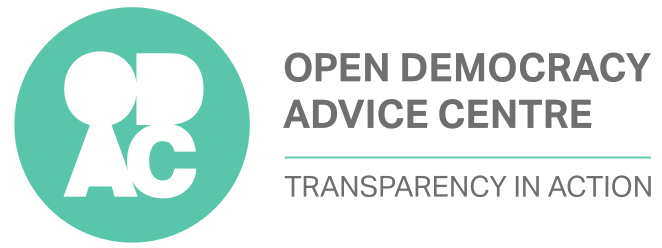Our History
The right to know is a critical part of development, as is increasingly being recognized internationally. Information is the life-blood of accountability. By enabling citizens to hold those in power to account, access to information law drives the realization of socio-economic rights, such as the right to education, adequate health care and welfare protection.
As Amartya Sen, the 1998 winner of the Nobel Prize for economics says, information is crucial to development and the prevention of disaster. Sen found that famines have never taken place in countries with a democracy and a free press. “A free press and the practice of democracy contribute greatly to bringing out information that can have an enormous impact on policies for famine prevention…A free press and an active political opposition constitute the best early warning system a country threatened by famine could ever have.”
A second role for access to information is in fighting corruption. Corruption, defined broadly as “the abuse of public power for private gain”, is of growing national, regional and international concern, particularly because of its negative developmental consequences and impact on socio-economic rights. In a context of political and economic globalisation all are affected, although it is the poor who suffer most. Whilst corruption is now acknowledged to be a feature of all societies it has a particularly devastating impact on development and good governance in developing countries in Africa. This is because it undermines economic growth, discourages foreign investment and reduces the optimal utilisation of limited resources available for infrastructure, public services and anti-poverty programmes. It may also undermine political institutions by weakening the legitimacy and accountability of governments.
South Africa’s constitutional drafters took cognizance of this, and included the right to access to information in both the interim and final constitution. The right to information would however have to be given effect to in legislation. The law, introduced as the Open Democracy Bill, was the subject of a lengthy campaign by social justice groups. They formed the Open Democracy Campaign Group, which was active from 1996 through 2000, and consisted of Idasa, Black Sash, Human Rights Committee, Legal Resources Centre, Environmental Monitoring Group, South African NGO Coalition, National Association of Democratic Lawyers, South African Council of Churches, the South African Catholic Bishops Council, and the Congress of South African Trade Unions. It made numerous submissions to the Parliamentary Ad Hoc Committee on the Open Democracy Bill, based on three years of extensive research. This was followed by the enactment of the Promotion of Access to Information Act in February 2001. Following its introduction, public and private bodies are obliged to provide access to a record unless the record qualifies for refusal in terms of certain exemptions specified in the Act.
At the same time, regulations setting out a framework for practical issues around access to information, such as the form of a request, fees and internal appeals came into operation. Further regulations were introduced in February 2002, which provided further guidelines for the dissemination of the manuals and reports which institutions were obliged to generate.
At the same time as the access to information act was passed, a new law intended to give legal protection to employees who blow the whistle on corruption and other wrong-doing in good faith was passed into law. The Protected Disclosures Act (no 26 of 2000) makes provision for procedures in terms of which employees in both the public and private sector who disclose information of unlawful or corrupt conduct by their employers or fellow employees, are protected from occupational detriment.
The Act sets out a clear and simple framework to promote responsible whistle-blowing by
- reassuring workers that silence is not the only safe option
- providing strong protection for workers who raise concerns internally
- reinforcing and protecting the right to report concerns to key regulators, and
- protecting more general disclosures provided that there is a valid reason for going wider and that the particular disclosure is a reasonable one.
Between 1996 and 2000, the Open Democracy Campaign Group highlighted the following pitfalls to effective implementation of access to information/right-to-know laws:
- Accessibility – citizens will not be aware of such laws and how such laws can be of use to them;
- Information and support – even if people know about the laws, they will require assistance in using them;
- Implementation – the laws creates substantial burdens on institutions both in the public and private sector to develop policies and procedures as well as to produce systems to effectively support the laws;
- Effectiveness – monitoring the implementation and use of the laws will be essential in order to refine and improve them.
Throughout the five-year Open Democracy Campaign, research and advocacy activities were engaged in locally and internationally, “best practices” compiled and adapted for use in the South African socio-economic rights campaign context. Repeatedly, the need was raised for a practical, specialist service organization to assist social justice-based organizations to access their rights in relation to PAIA and PDA.
The Open Democracy Advice Centre (ODAC) was launched in October 2000 as a niche, not-for-profit partnership between the Institute for Democracy in South Africa (Idasa), the University of Cape Town Department of Public Law, and the Black Sash Trust. It is the only specialist Centre of its kind in South Africa (and on the African Continent).
